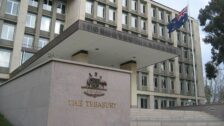Senate inquiry highlights challenge facing advisory market
The Compensation Scheme of Last Resort, or CSLR, has become something of a lightning rod for the finance industry in 2022; and yet we are less than a month into the year. While almost every impacted party agrees on the importance of the new scheme, few can agree on who should pay for it, and be considered within its purview.
‘Moral hazard’ has been raised on numerous occasions by both the Financial Services Council, representing the managed investment scheme industry, as well as advice industry bodies like the SMSF Association and the Association of Financial Advisers (AFA.)
They refer to the imperfect structure of a consumer compensation scheme which relies upon those companies, at this point only financial advisers, that are well-managed and not receiving complaints, to fund complaints and unpaid settlements against other members of their own industry, or those that have already left.
The FSC has broadly provided support for the CSLR, suggesting it be combined with everything from higher capital requirements and a more competitive professional indemnity insurance environment for the financial advice industry among other issues. But the call to include all managed investment schemes has been met with strong pushback.
The group, among other bodies, highlights that the majority of the recent unpaid determinations are due to financial advisory firms and their subsequent failure, or shutdown resulting in the non-payment of restitution to affected clients. They suggest including managed investment schemes in the CSLR would result in a similar issue, in that the best-managed would be paying for those who have disappeared, impacting clients.
Similarly, Senator Jane Hume, Minister for Superannuation, Financial Services and the Digital Economy, noted that the purpose of the CSLR isn’t to cover the costs of risky investments failing, although that seems to be the driver of many of the complaints towards advisers.
The SMSF Association, being the peak body for SMSF specialist advisers and accountants, offered its opinion at the Senate Inquiry this week, highlighting that it was “deeply concerned” that the scheme doesn’t include all market participants. SMSFA refers to the fact that many SMSF trustees and investors do not engage with financial advisers, and therefore have few if any ways to seek compensation when investments go wrong or fail.
Specifically, the SMSF peak body is concerned about the history of “substantial financial losses because of the misconduct and subsequent insolvency of managed investment schemes,” including the well covered Trio Capital failure. The association remains a strong supporter of any measures that “strengthen consumer protection” but is wary of adding another financial burden onto the advice industry.
Most importantly, it flagged the importance of the Australian Financial Complaints Authority (AFCA) retaining its power, and ensuring that the CSLR “does not in any way distract or disincentivise AFCA from taking active and appropriate measures”. The association believes clear guidance is required around “the expected level of AFCA endeavour and action to chase down unpaid determinations and fees.”











